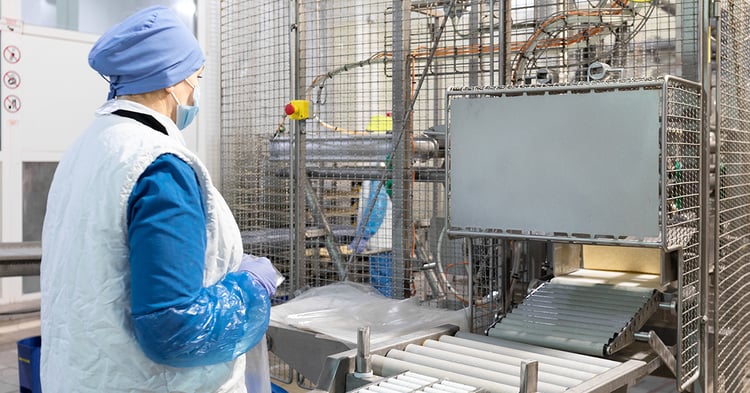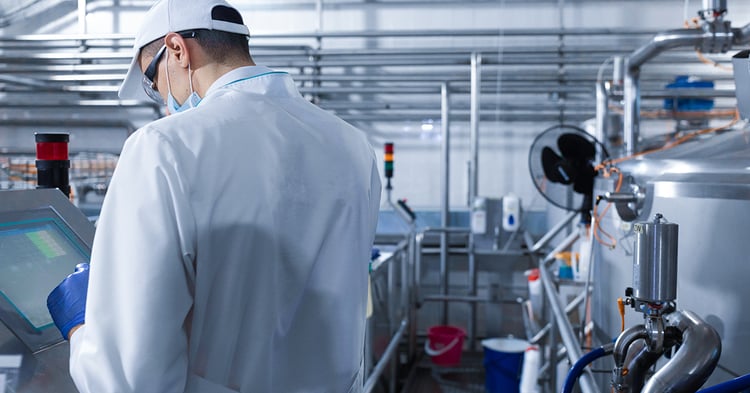![]()
In the food and beverage manufacturing industry, data capture is essential for meeting customer demands and keeping up with the ever-evolving landscape. Data capture helps track product development, batch lots, production times, packaging dates, suppliers and more. This information can provide valuable insights into how to better streamline processes, improve quality control, and reduce costs—all of which are essential for staying competitive in today’s market.
In most manufacturers, the manual process of data capture is still implemented and that can lead to inaccuracies as it can be time-consuming and prone to human error. However, there are many ways in which data can be captured using today’s technology.
This article will cover the importance of data capture in food and beverage manufacturing, and how LiveTracking can help your business in capturing accurate data.
Benefits
Manufacturing of food and beverages is a highly regulated sector that frequently undergoes a rapid change in response to consumer demand. Globally, this industry is now run differently, thanks to the Internet of Things. Performance tracking is now easier to do because of the increased automation and technological advancements.
Data capture systems offer a number of benefits that make them invaluable to food and beverage manufacturers. These include increased accuracy of data collection, faster processing times due to automated processes, improved inventory tracking leading to fewer errors in orders or shipments, and greater supply chain visibility allowing manufacturers to effectively manage their sources of raw materials.
Real-time accurate data on your processes give you greater facts to take into account when making decisions and examining areas where you may improve. What you can physically see may not be a true representation of your output. Captured data gives you a more in-depth understanding of each stage of your processes.
Additionally, data capture technologies help ensure compliance with industry regulations such as labeling requirements and health codes; this helps protect consumers from serious health risks associated with contaminated foods or beverages.
Data capture systems also enable manufacturers to quickly analyze large amounts of data in order to identify trends or areas for improvement.
Ultimately, data capture has transformed the ability of teams to coordinate and collaborate effectively. By recording data in a standardized and organized way, it makes sharing and interpreting data quicker, smoother, and easier than ever before. With data capture, data is no longer siloed in departments but instead shared across teams in near real-time, enabling teams to work together more efficiently on projects and identify areas for improvement quickly. As data is increasingly becoming an integral part of day-to-day operations across various industries, data capture is essential for successful team coordination and collaboration.
Challenges
Despite its many benefits, there are some challenges that food and beverage manufacturers must face when implementing a new data capture system.
For one thing, it can be difficult to integrate new technology into existing systems. This can lead to compatibility issues that may disrupt operational efficiency.
Another, food and beverage manufacturing Industries that have a large number of employees usually have many steps involved in their data capturing process. This includes collecting information from employees and equipment. The problem with this is that it may take a long time to ensure collected data is accurate and reliable, due mostly to human error in usage, or equipment malfunctions.
Data capture systems also often require substantial upfront investments in hardware and software that may be cost-prohibitive for smaller companies.
Lastly, the sheer amount of data generated by these systems can be overwhelming if they are not managed properly. Without proper management tools in place, it can be difficult to extract any meaningful insights from all the collected information.
Solutions
Data capture is an essential tool for any food and beverage manufacturer looking to stay competitive in today’s market. By leveraging automated processes such as barcode scanning or RFID tracking technologies—along with proper management tools—food and beverage manufacturers can better understand their customers’ needs while gaining valuable insights into their own operations at the same time.
With the right combination of hardware, software, training resources—and most importantly a well-thought-out implementation plan—data capture technologies can help ensure your products meet customer expectations while simultaneously reducing costs. Ultimately, this will lead to higher customer satisfaction levels while maintaining profitability goals set by company executives.
Where Does LiveTracking Fit in this?
For those looking to capture data accurately and in real-time, LiveTracking, an effective data capture system is the ideal solution. By providing an accurate capture of the production line and enabling continuous improvement teams, manufacturers can make well-informed decisions regarding their production plans and achieve better results.
LiveTracking is an invaluable tool for capturing accurate data and reducing costs in the manufacturing process. By leveraging the features offered by LiveTracking, manufacturers can create detailed plans that accurately reflect their resources and optimize their processes for maximum efficiency.
Tap into more opportunities for optimization with LiveTracking, an effective data capture technology. Contact LiveTracking here.


